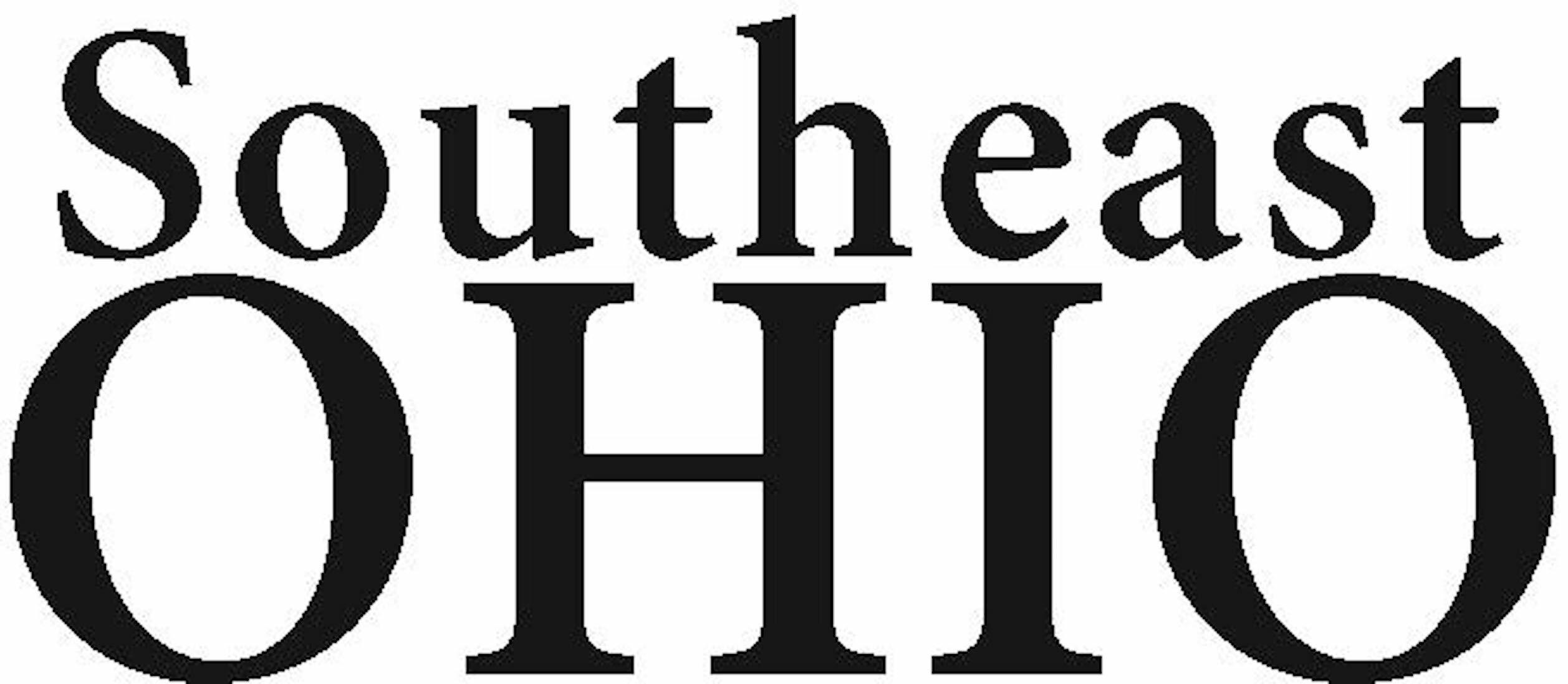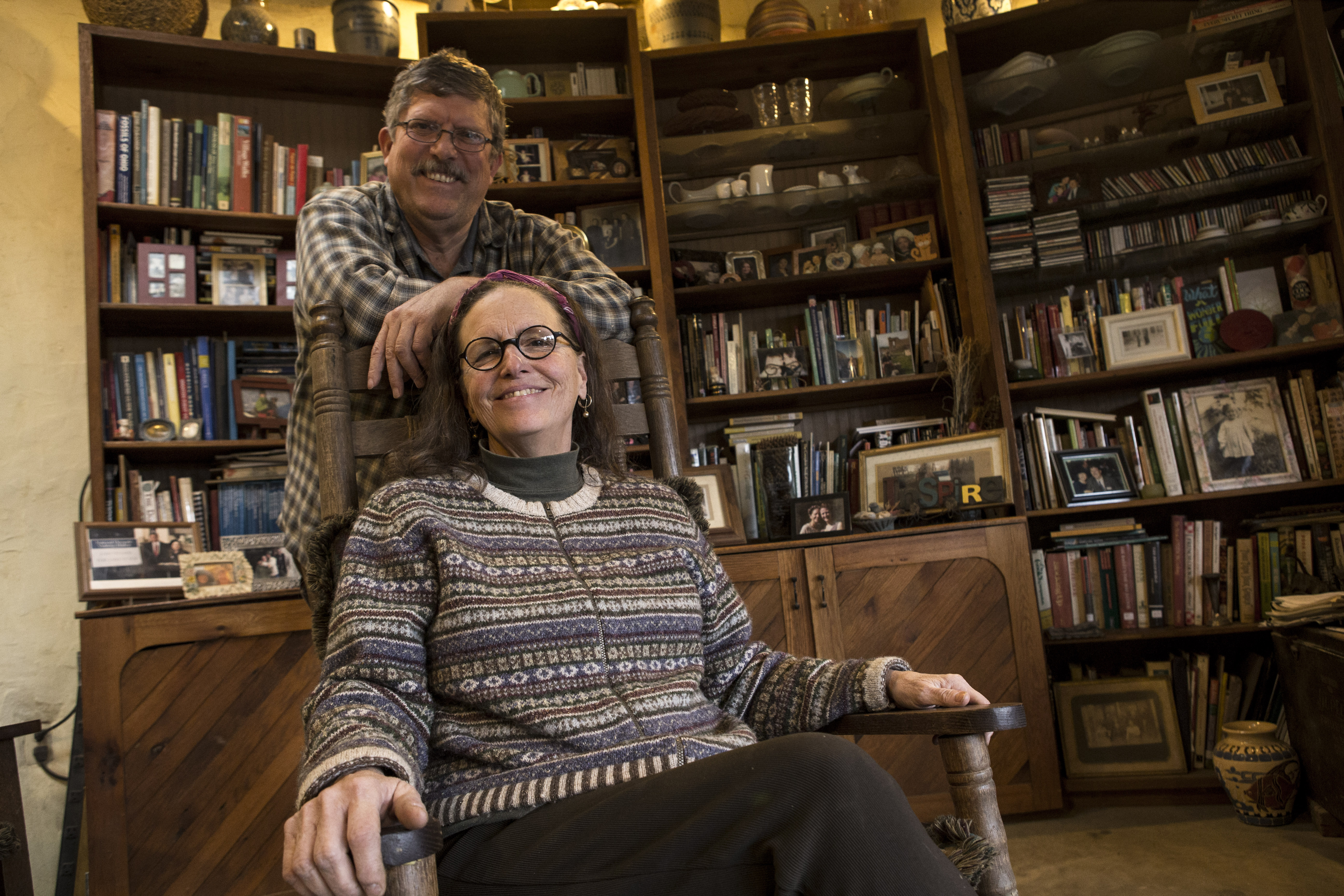Down a winding back road in Philo sits the home of Annie and Jay Warmke. But this isn’t an average house made of brick, siding or stone.
The Warmke’s house is made of trash.
The walls are filled with mud-packed tires and covered with a limewash finish. Cans, bottles and other reusable items are also employed in the structure. The home uses a combination of thermal mass and passive solar. Thermal mass means the structure’s material absorbs and stores heat energy, while passive solar refers to the sunlight coming through the windows. The only other heat source is a small fireplace in the living room, which warms up the space where Annie works.
At Blue Rock Station, Jay and Annie use grey water recycling, solar electricity and composting toilets. Grey water recycling is the reuse of water from sinks, showers, tubs and washing machines. The process allows the Warmkes to raise plants in an indoor wetland. The solar ray provides electricity for their home, and the composting toilets allow waste to be used as a nutrient-rich fertilizer.
“The idea is that you can provide all of these systems for yourself, and then why not build the structure itself out of things people are throwing away?” Jay says.
There are 14 other buildings on the site, all created with similar reusable materials. The Warmkes, interns and monthly workshop visitors built each structure from scratch. During the summer months, Annie and Jay invite people to come work on the tiny house, their latest project. During the workshops, participants learn basic construction skills such as building insulation and plastering. This year, they are creating what looks like cement blocks that are actually made of straw and mud. Those will be used as the insulation of the building.
One former intern, Eduardo Sandavol, still returns to Blue Rock Station to work on the tiny house. The house is going to be two stories with a sleeping place, a small kitchen, a shower and a porch. Sandavol wants to build his own home to live in and is using the sustainable construction and carpentry skills he’s learned from Annie and Jay to make that happen.
“If I can temporarily stay in something like this while I construct my final home, something I don’t have to invest that much money into, something that is easy to put together, something that can stay on my property as a guest home—that’s really ideal,” he says.
Sandavol is also a part of a group of interns that created the Blue Rock Station free school. Alongside the Warmkes, the interns instruct skills that aren’t taught in today’s culture. Among those skills are basic carpentry, self-care, basic sewing, car maintenance and bread making. The idea behind the free school is those who take part will form a community by working on a local level and looking out for one another. The two- to three-hour sessions are held on the third Saturday of each month at Blue Rock Station.
Creating a support system in Southeast Ohio was difficult for the Warmkes at first, but they have involved themselves in many groups. Jay is on the board of Green Energy Ohio, a nonprofit organization that promotes environmentally and economically sustainable practices. Annie created Women Grow Ohio, a group that connects women who are producing food on a small scale. The two also work closely with Rural Action in Athens, a nonprofit agency that works to ease poverty in the region.
Exchanging re-usable resources, sustainable skills and friendship among likeminded people is what keeps Annie and Jay interested in sustainable living. The two are especially inspired by the young interns who live and work at Blue Rock Station.
Oftentimes, Jay and Annie see physical and intellectual changes in those individuals by the time they leave. They hope that the interns can take the skills they learn and apply them to their own lives.
“If you can say, ‘I don’t need a big house; I can have a smaller house. I don’t need a new thing, I can have a used thing;’ Then you begin to find that these choices are not hardships,” Jay says. “They’re more like living life aware.”
Those choices have proven successful for the Warmkes. They plan to continue offering opportunities for others to learn and contribute. Their home at Blue Rock Station has become more than a house—it has become a community, an ideology and a lifestyle.
“I was dreaming of it for many years of my life,” Annie says. “I couldn’t imagine it would look like this, but I knew it would feel like this—where people feel safe and happy and get some courage within themselves. That’s what I thought it would feel like. I achieved that.”
SEO
Related posts
What’s Inside
- Behind the Bite (68)
- Features (124)
- In Your Neighborhood (102)
- Photo Essay (4)
- Read the Full Issue (8)
- Talking Points (48)
- The Scene (15)
- Uncategorized (3)
- Web Exclusive (5)
- What's Your Story? (21)


Find us on Social Media